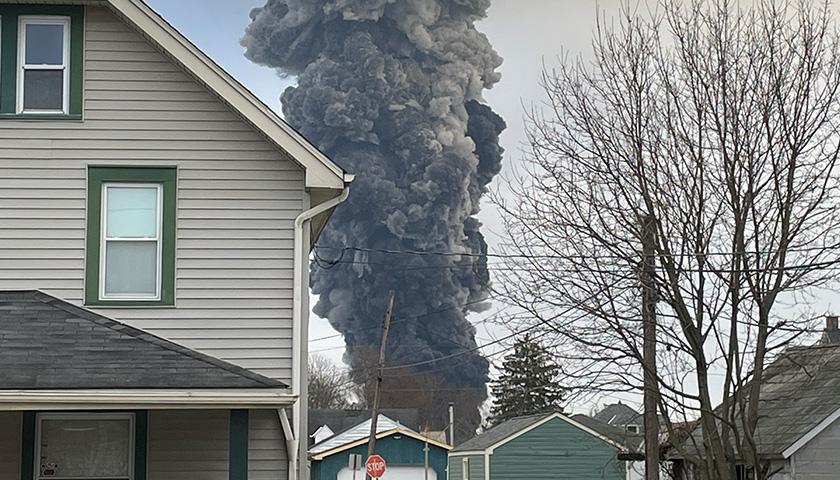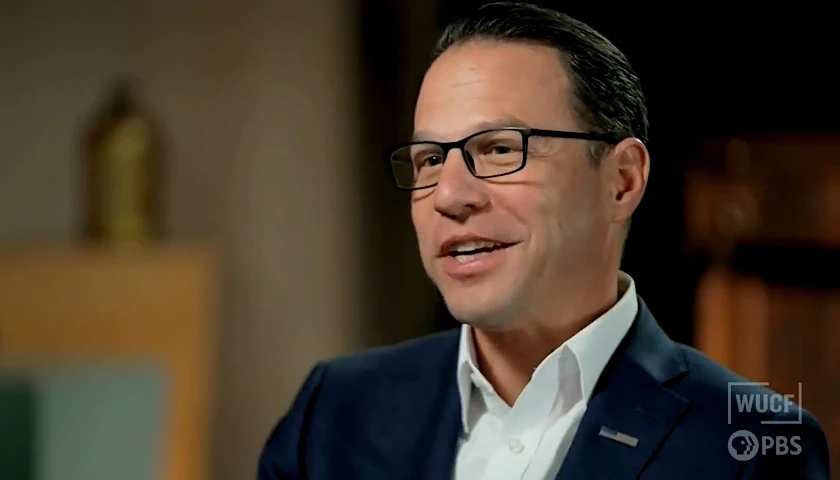The Pittsburgh-based law firm Lynch Carpenter and the Philadelphia-based firm Seeger Weiss this week announced new class-action litigation against the Norfolk Southern rail company for the aftereffects of the February 3 train derailment in East Palestine, Ohio.
After the accident, Norfolk Southern personnel ordered the venting and burning five of the train’s cars containing toxic vinyl chloride. The release-and-burn strategy has since drawn widespread denunciation after citizens, and public officials pointed out apparent harmful health and environmental consequences. Pennsylvania Governor Josh Shapiro (D) initially supported the “controlled burn” but later reversed himself, claiming he was not informed that the rail corporation would incinerate five cars instead of one.
Insofar as the Ohio derailment site sits less than a mile from the Keystone State’s western border, many Beaver and Lawrence counties residents have reported experiencing ill effects resulting from the incident. Initially, one resident of Beaver County and one business owner in that county signed on as plaintiffs in the new litigation, but Lynch Carpenter says the list of petitioners is growing.
Speaking to WTAE in Pittsburgh, firm partner Kelly Iverson treated the issue as deeply salient to her and her colleagues, noting her legal outfit maintains a headquarters in Lawrence County and employs people who live there.
Litigants against Norfolk Southern allege that the corporation should have anticipated medical problems for humans and livestock as well as contamination of local air, water, and soil. The plaintiffs also fault the company for what they characterize as neglect of measures to prevent or mitigate derailments. (Concern around the issue intensified after a second Norfolk Southern derailment in Ohio occurred in Springfield on Saturday.)
“They have had other train derailments in that area,” Iverson said. “They have had train derailments in other areas. You have a company, Norfolk, absolutely putting profits before people. Last year, they made $4.8 billion, but at the same time they are cutting employees that they need, they are cutting safety measures.”
Redress the petitioners want includes both direct compensation and funding for health-monitoring efforts.
Norfolk Southern has declined to comment on the lawsuit, one of many legal proceedings it faces in light of the February crash. Litigants from East Palestine and nearby communities have accused the corporation of discharging over 1.1 million pounds of vinyl chloride into the atmosphere. In addition to medical monitoring and damages, plaintiffs in these suits want agreement over new safety rules and stepped up cleanup efforts.
Unwholesome consequences observed by area residents include dead farm animals, property-value impacts, and visibly discolored waterways, as well as increased incidences of migraines and nausea.
Shapiro and Norfolk Southern have ironed out an agreement to reimburse public agencies roughly $7.4 million for those entities’ remediation activities since the derailment. The accord also creates a $1 million community relief fund to aid affected businesses and residents.
Norfolk Southern has responded to scrutiny so far with a six-point plan to enhance safety, including adding more bearing detectors to sense overheating, developing more advanced detectors, deploying vibration-sensing equipment for axles, using more artificial intelligence to spot defects, and participating in the Federal Railroad Administration‘s Confidential Close Call Reporting system.
– – –
Bradley Vasoli is managing editor of The Pennsylvania Daily Star. Follow Brad on Twitter at @BVasoli. Email tips to [email protected].
Photo “East Palestine Train Detrailment” by EPA Great Lakes.





